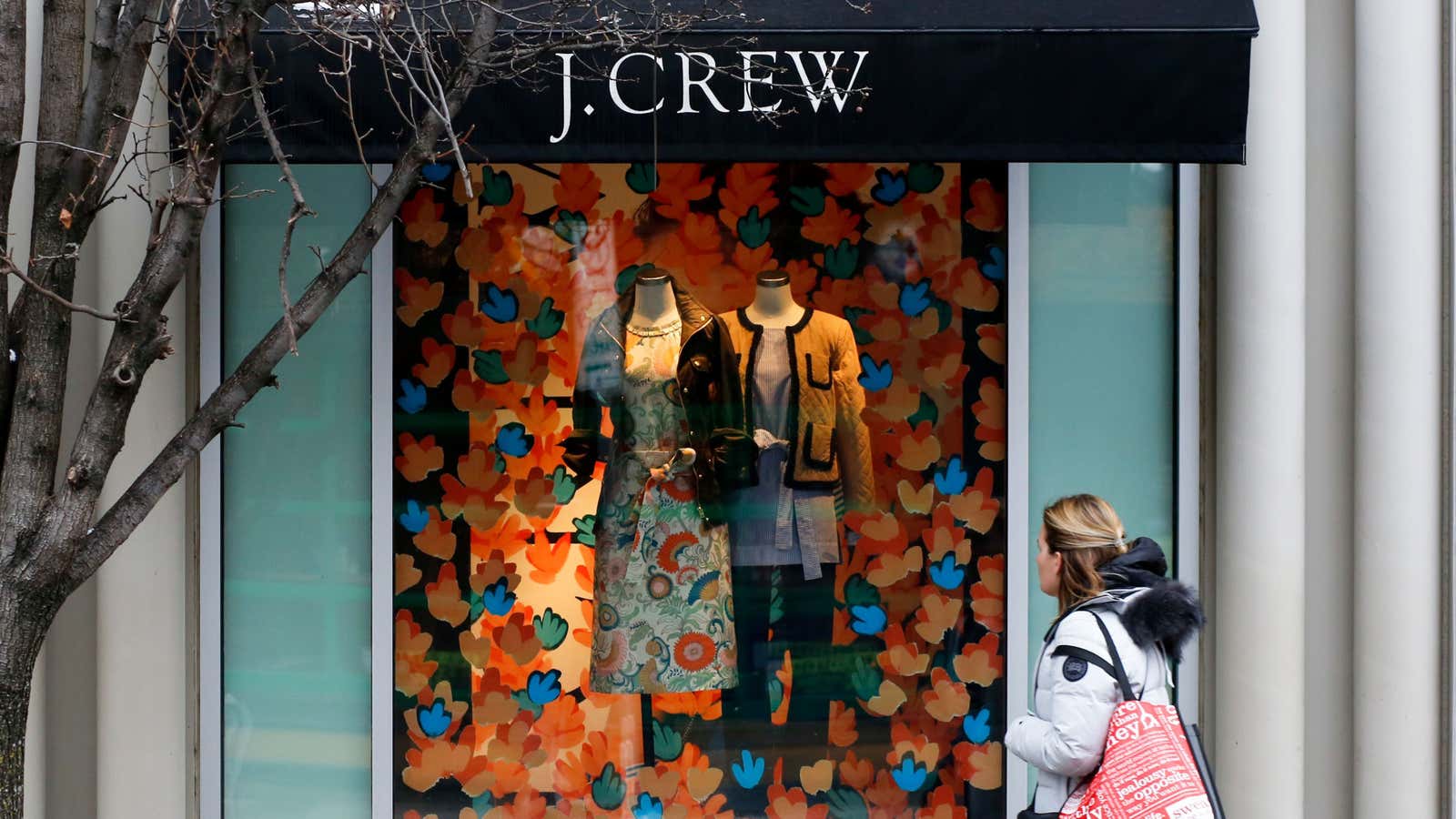After years in a slump, downtrodden J.Crew is suddenly showing small signs of life.
The group’s sales at stores open at least a year grew for the first time since 2014, CEO Jim Brett announced yesterday (May 30). The reason wasn’t because Americans shoppers are having a change of heart about J.Crew itself though. Rather, the growth resulted from a record-breaking quarter at Madewell—the cooler, younger, and rapidly growing denim label J.Crew owns.
At Madewell, sales shot up 31% at stores open more than a year. But at J.Crew, sales continued their fall, plunging 6%. Overall, the group was able to eke out a tiny 1% increase.
Madewell has a lot going for it. It’s doing well selling its washed denim and other soft-hued, lived-in clothes online and in stores, defying the ugly brick-and-mortar retail struggles most other “mall” brands are contending with. Madewell is finding customers with its new range of extended sizes, which lets it cater to women from size 0 to 20—a smart play given that many American women are in the higher end of this range. It has a successful loyalty program that gets members to spend more than the average Madewell shopper, and it has done the very basic, but very important, job of developing fabrics and fits that customers actually want.
“I truly believe the reason that we’re successful is we think smaller and we’re all about listening to the customer and the Madewell community to fuel our growth,” Madewell president Libby Wadle recently told Business of Fashion (paywall). “There’s a wonderful feedback loop.”
The once-almighty J.Crew hasn’t had a lot of good news to deliver in the past few years. Shoppers have largely moved on from the dressed-up prep that made it one of the hottest American brands of the early 2000s. Last year, J.Crew very publicly ousted the people who had engineered that one-time success, former CEO Mickey Drexler and former creative director Jenna Lyons.
Right now, the group is looking to play to its strengths. At Madewell, for example, it plans to offer more denim fits and expand its range of extended sizes. It’s also looking to boost the wholesale business it does through partners like Nordstrom. On a call with analysts yesterday, J.Crew group president Michael Nicholson said they intend to “aggressively scale” wholesale for both J.Crew and Madewell.
The plans to turn around J.Crew itself, meanwhile, include continuing to introduce a more diverse assortment of clothes. Recently it debuted an intimates line, a swim line, and a “Heritage” collection of its classic styles. It will also create a loyalty program later this year, and in September, the company is planning a full “relaunch” of the brand.
A single quarter of same-store sales growth doesn’t mean J.Crew has climbed out of its hole just yet, but for the company it’s a glimmer of hope that the overall business might finally be starting to improve. As Business of Fashion noted, earlier in May the credit ratings agency Moody’s upgraded its outlook on J.Crew group from “stable” to “positive.” Madewell’s success was one of the main reasons for the change.
